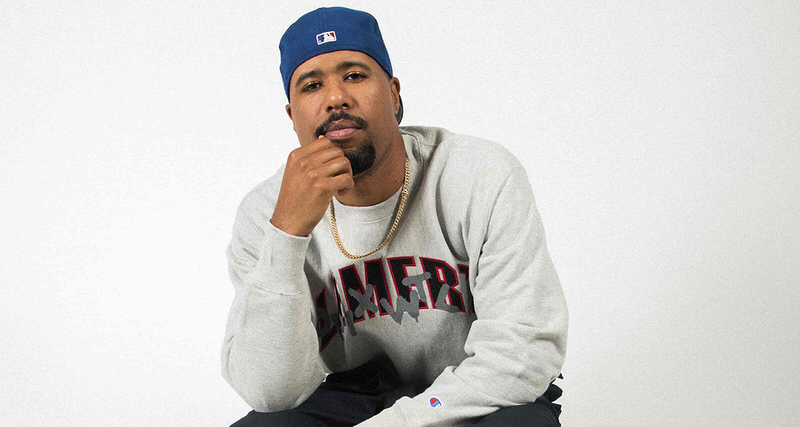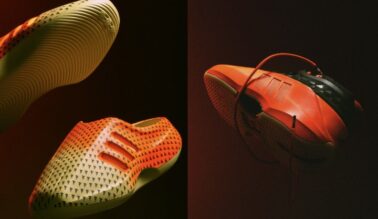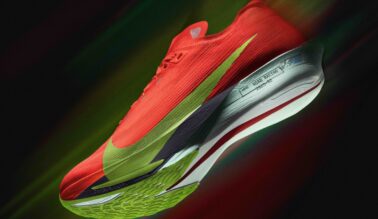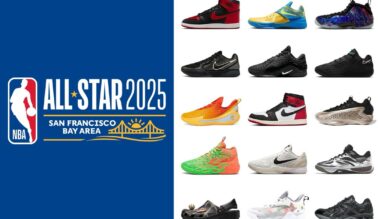This post may contain affiliate links. Please read our disclosure policy.
Images by Christian Cortez Smiley
Dom Kennedy is a Los Angeles legend. As an independent artist, Dom has manifested a style of his own that transcends music and fashion.
What started as an inherent taste amongst family and friends in 1990s Los Angeles has now flowed into the spotlight, becoming the popular style of the streetwear scene we know today. To no surprise, Dom Kennedy was at the gates for all of it. Making trips to and from to Fairfax before the hype, bringing new styles to old neighborhoods and coming into popularity at the same time as folks like Nicky Diamond and Bobby Hundreds, Dom has been around to see the transition of streetwear into popular culture first hand.
After linking up with Dom to talk about his sneaker rotation lineup, we wanted to talk more with him about his personal sense of style and independence. Read our full conversation below and be sure to catch him on tour, for his Win or Lose tour, which is happening now.
[bsc_separator style=”solid” height=”5″]
Nice Kicks: Raised in Los Angeles, how early were you introduced to the world of sneakers and streetwear?
Dom Kennedy: I was a baby man. I was in the game before I was in the game you know? With all the people I had in my life, like my mom, my uncle and people like that, they would dress me when I was a baby. This was in the late ’80s, so growing up in the ’90s my style just kinda carried over from that.
As a result of being introduced to that style so early on, I kind of dress the same way now that I did then. I had my first pair of Cortez by like kindergarten, you know? I had my first pair of Vans and Jordans in the first grade. So it wasn’t really like a “streetwear” thing it was just kind of like this is what’s cool, and this is how we dress kind of thing.
As I got older and things became retro — when was that, around the mid-2000s? — that was when it all started spreading out with retros and streetwear. I was at ground zero. Just being from LA and then making the journey up to Fairfax and meeting some of the people from that area that were putting it all together. I got to know these people early on that were starting companies and that would eventually blow up and help make streetwear what it is today.
I was coming to Fairfax with my own style. So I grew to know Bobby and them from The Hundreds, you know, I knew Nick Diamond at Diamond. I would go to the Supreme store when the original people were working at the store. You know what I’m saying? Then I would come back to my area with those clothes on. I was the only one doing that where I was from too, so I would see the difference, and I saw how it would gradually trickle down. In those days — with that type of streetwear — it was a real small thing at the beginning.
But you know, again, that’s a result of my early style. I was wearing Stussy in the ’90s. My uncle would wear Tommy Hilfiger, Polo shirts, with some K-Swiss shoes on. This is in 1994, this is not like a picture for online, this is how they were living and dressing for real. Those were the people who had it on, it was just what they were doing at that time. My uncle would give me a Stussy shirt that he wasn’t gonna wear anymore and say, “Here, wear this to school.”
For them too, it wasn’t like they had people putting them on. It was more like you either had the style or you didn’t. It wasn’t as easy to just steal someone’s style back then as it is now. Your style was more like a representation of who you are because you had to know about the stuff you were wearing. You had to know who was making it and where to buy it, you had to be able to afford it, so you had to like really have that inside knowledge or be from a certain area to have that kind of style. You had to know where to go to find what you were looking for.
Nice Kicks: By connecting with those major streetwear players so early on in Los Angeles, did you feel like that helped you better navigate the world of modern streetwear?
Dom Kennedy: For sure — but they weren’t hand feeding it to me by any means, you know, I already had my own style. But by knowing them, I had a front row seat to watching it all spread out. It’s kind of like in life, people will gauge you and accept you based on your appearance, you know? So just me being me, all these people were recognizing me and noticing that I was coming with my own looks, like, “He might not wear all the stuff we making right now, but he’s coming with his own style.”
Like I said, I was already wearing Stussy before all of that, but sometimes I would come around with a Diamond t-shirt or a Hundreds jacket, or a Supreme anything. I would move how I still move now. Mix and match from all these brands and just pick out what I like.
Undefeated was like a big thing back then too, because for me it was always just shoes anyway. Y’all get it. [Laughs] Clothes and stuff, I appreciate them, but really my first love is definitely shoes. I love shoes more than anything. So I definitely gotta mention Undefeated.
Around then, you could just have some jeans and a basic white tee on. But if your shoes were fresh, you were good anyway.
Nice Kicks: Do you think that your independent style habits feed into your creative process as an independent artist?
Dom Kennedy: Definitely. Since day one. I have that mindset in anything, too. In my latest album, Volume Two, one of the lines I said was, “I’m still Gucci even if we got the same shirt.” Which to me means, you know, people are gonna copy your style. People are going to spend $1,500 on a t-shirt and be mad if someone else has it on. But that’s never been my approach — I’m gonna be good regardless, even if we have on the same exact thing, I’m still gonna stand out. You know what I’m saying? That’s just my mentality.
You could have on Gucci and I could have something from the Goodwill and I’m still gonna be good. That’s just how I feel. So, independent, up, down, it doesn’t even matter. I know that I’m going to have a connection with people by just by being myself.
Nice Kicks: As an LA native, you promote the saying ‘Los Angeles is not for sale’ which is actually what your latest album Volume Two is a reference to. What does that phrase mean? Do you see your city as something to be protected?
Dom Kennedy: Well, yes and no. Not like physically, but yes in the sense of maintaining its integrity. Integrity wise, it’s important to keep a constant. Because things are going to change, the change is inevitable, but at the same time, certain values that were here even before me are being passed down through all of us, and it’s up to us to introduce some new ones and even expose some of the bad ones too. So that’s the part about change that I was talking about. And that’s what that title means to me.
I actually thought of that title some years ago. Because, you could sell your house, obviously. You could move to LA, move around LA, or you could leave LA. But at the end of the day, LA is still going to be LA: the mentality, the mindset, is always going to stay with the city. No record label, or one person, no media is ever going to change that, we’re all just a part of the story. There were people way before us and there will be people after us, but me, I just try to put my stamp on it.
I know LA, that’s what raised me. If I was teaching a class, that’s what I would teach about because that’s what I know. I wouldn’t go and talk about algebra, cause I don’t know that. [Laughs] I know about LA, I’m an expert in that.
Nice Kicks: How are you occupying yourself outside of music/tour these days?
Dom Kennedy: Family. I got other artists now and I enjoy working with them, so it’s still music too, you know. The music thing is a pleasure man. Even when I get frustrated or might be a little fatigued with the music game, that’s when I go harder honestly. Because it’s such a privilege and a blessing, and you can’t do it forever.
I really enjoy cars too, sometimes I’ll even go to car swap meets by myself. Just like I might go shopping by myself, I go to car swap meets all the time. I’ve gone down there with backpacks full of money to buy old school cars before. People see me there and they say what’s up and they see me there as just a regular dude that enjoys cars. That’s definitely one of my interests outside of music. I really like Impalas — old Chevys are what I’m into. So I’ve bought a couple of those over the years.
Also, just seeing my people come up. If there’s any way I can help my people come up I love to get involved. And most of my friends make music so a lot of the time that looks like me helping them with their production or whatever, however I can.
Nice Kicks: You’ve got a good career under your belt. With your album done, is there anything out there that has your creative focus?
Dom Kennedy: Well, yes, the album is done. But now we’re working on this OPM album — a compilation album. We dropped the first one about 6-7 years ago, back when we were first starting out the company. It did really well for us, too. People still come up to us and ask about it. So we’re working on a follow up to that right now. And I’m excited about that because that’s going to help my artists and showcase the talent that we got and where they’re going with their sound.
We have the Win or Lose tour in full swing and I’m definitely working on my album for next year. Because it just doesn’t stop. We’re in the midst of it. Everything is a learning process, and I feel like what I’m doing right now even is a lesson for the next time. So it doesn’t stop.
I feel like Volume Two is my best work to date but I still have so much more I could give. I’m in such an interesting point in my life where, for me, it’s about learning. My best music is still right ahead of me, so I’m just trying to be prepared and keep my mind right.
Working out throughout the week and making sure that I’m all the way mentally and physically locked in. I want these years to be my best years.
[bsc_separator style=”solid” height=”5″]
Keep up with Dom Kennedy on Instagram and be sure to check him out on tour this season as his Win or Lose tour makes its way around the U.S.




